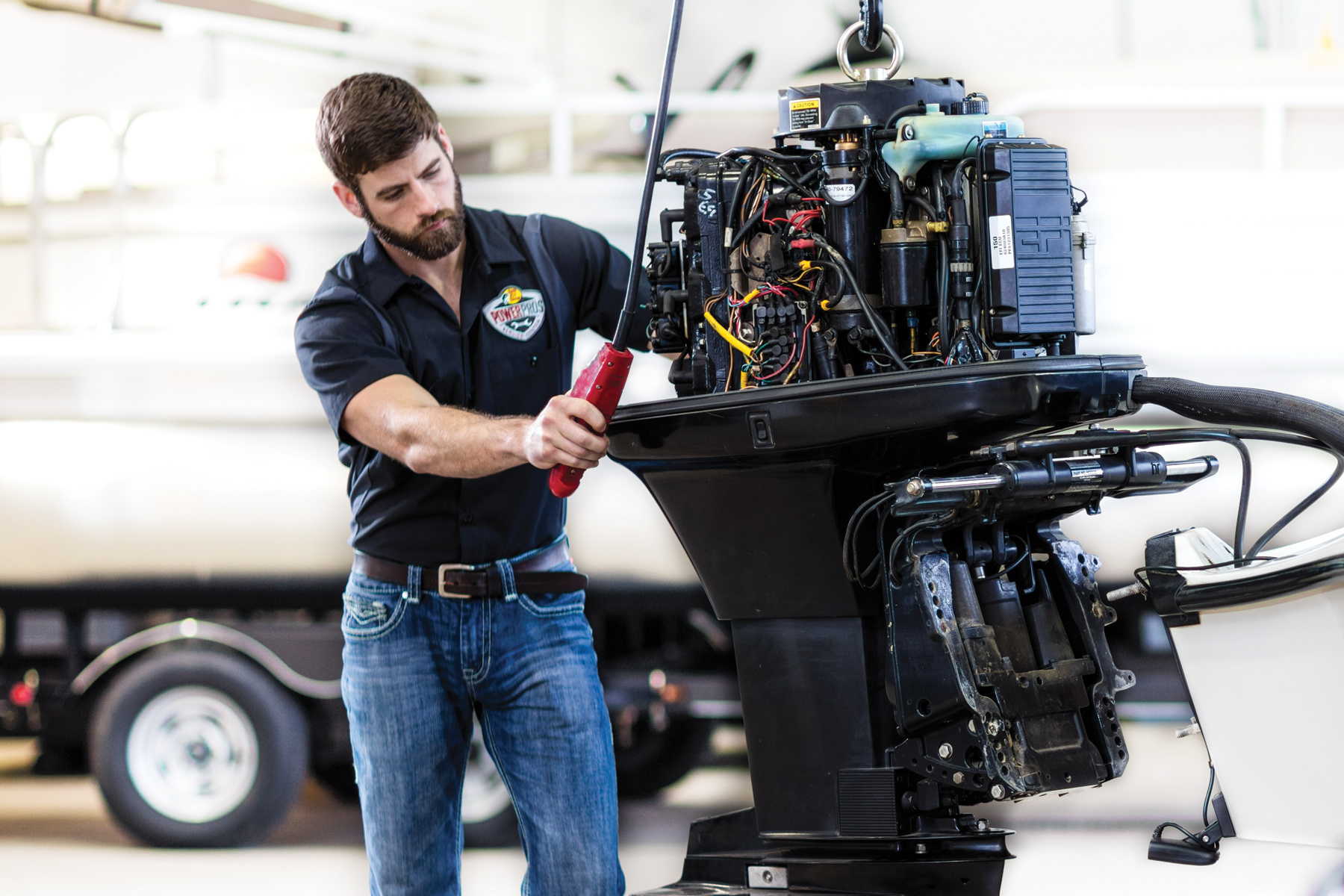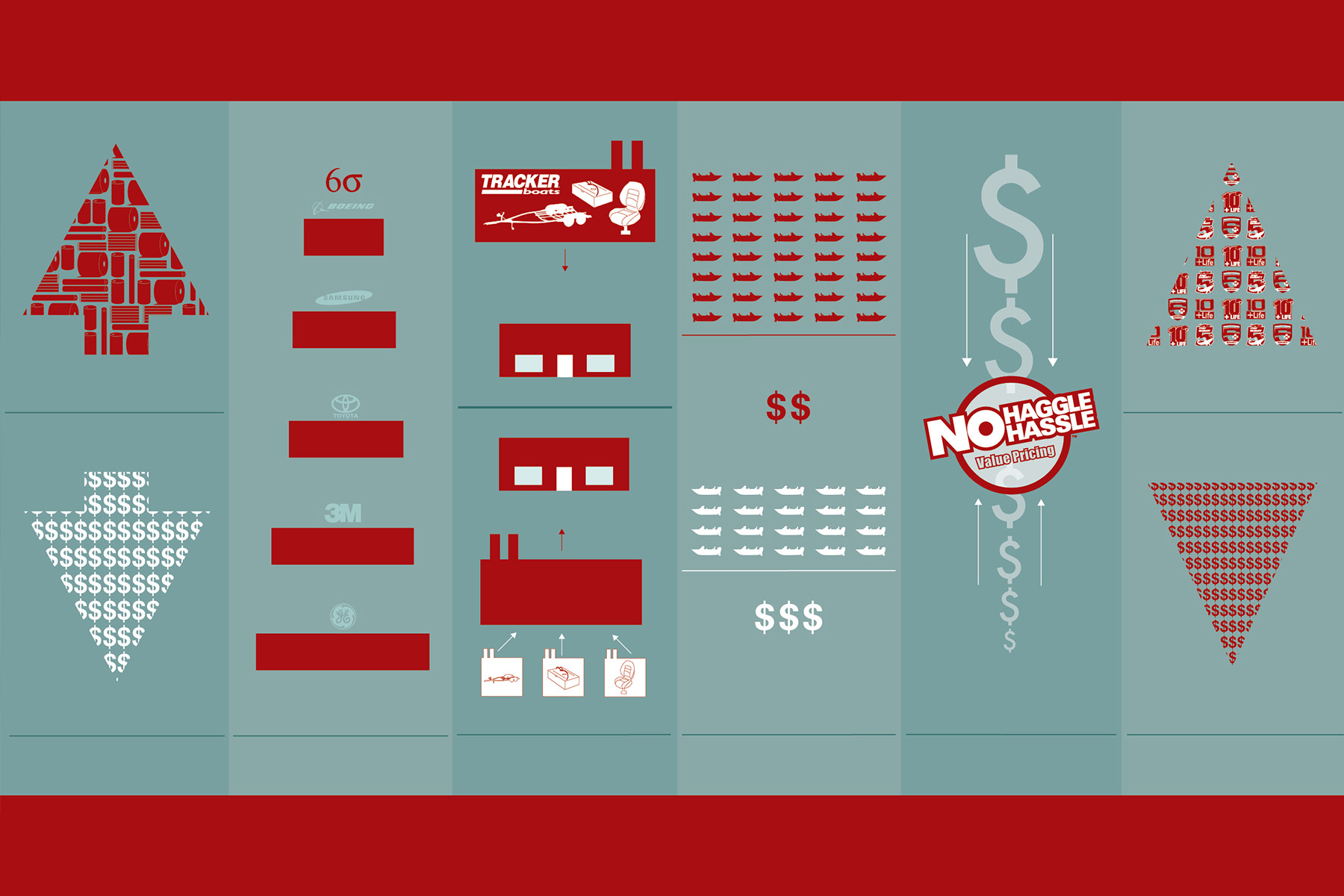Winterizing the boat. Just the thought can send shivers down the spines of boat owners. For one, the timing generally means the end of a fun boating season. Plus, winterizing ranks low on the priority list of “fun” fall chores like raking leaves and cleaning gutters.
Before blowing them all off, remember, those chores have a purpose. For boaters, winterizing keeps money in the fun budget, instead of being wasted on costly repairs.
By winterizing your boat, you can help ensure that when the first warm day of spring awakens your boating senses, the drive to the boat ramp will end there, instead of making a U-turn back to the dealership.
Is winterizing for you? Let’s see!
Only the fortunate few living in the mildest climates are immune from winterizing their boats. During winter, if nighttime lows dip into the 30s, you are among the majority of boaters who should winterize. That includes areas prone to short-lived cold snaps that rebound to warmer temperatures.
If you are mechanically inclined, approach it as a DIY project.
Heed these words of caution, though! Winterizing the engine is only part of the job. The entire boat and even the trailer must be part of the process, too. Missing just one step along the way can have costly consequences. So, leaving the job to expert mechanics is a good idea.
Just because you wear shorts and flip-flops through the fall isn’t a reason to skip winterization. According to BoatUS insurance statistics, the states with the most reported claims for freeze-related boat damage are not where you think—California and Florida top the list, because boaters there are less prepared.
The bottom line is that winterizing is a good idea, no matter where you live. Routine inspections and preventive maintenance can also uncover other problems you can’t see.
Sterndrives are powered by automotive engines and require more preventative maintenance than outboards. Believe it or not, the reason is the very water that floats the boat. Water expands when it freezes and creates tremendous pressure when trapped. The damage is twofold—cracking parts and then water damage when thawed out.
Most insurance claims are filed for cracks in the engine block or exhaust manifolds after water as left in the cooling system during a hard freeze. Too often the result is a complete engine replacement.
Water holding tanks, livewells, bilge pumps and engine water pumps all hold water, too. All it takes is one night of cold weather and a little water inside any of those parts to do some serious damage.
Moisture also builds up in the fuel tank. Ethanol absorbs water and forms condensation in the tank due to changes in the ambient temperature. This can cause more water problems where you might least expect them.
Add up all the above and you have more than enough financial motivation to have the boat winterized. The pay me now, pay me later cliché really speaks true at the dealership when those problems rack up. Even worse, you might not find out those problems exist until taking the boat to the water on the first glorious day of spring.
The answer is short—before the first hard freeze. Check the calendar and back track the time needed to schedule and have the work performed at the dealership. Winterizing most boats takes an hour to a day, depending on the level of service. Don’t wait too late, otherwise the damage could begin before your appointment. Plus, you need to take into account the dealership’s schedule.
Follow the advice of your boat manual and dealership. Many have scheduled maintenance programs specifically for your boat and location. The dealership can also help you decided how much winterization—beyond the basics—your boat needs based on where you live.
When the boat is ready for pickup, there is more you can do. Put the boat to bed for the winter indoors in a climate-controlled facility with a backup generator in case of power loss due to a storm.
Indoor storage can get expensive sometimes, especially for a family runabout or bass boat. Keeping the boat out of the water is the next best option. The garage is also a good bet. Remove the batteries and keep them charged.
If you do have to store your boat outdoors, keep it covered. The custom cover designed for your boat is ideal, as are winter covers made of canvas. They have vents that keep air circulating throughout the interior, reducing the change of condensation buildup. If you’re using your regular boat cover, leave space for air. Shrink wrapping is growing in popularity and it keeps out rain and snow. However, the plastic can trap moisture inside and create serious mildew issues. If you go that route, let the pros handle the job.
Here is something not to do. An electric space heater can make a small room toasty on a cold winter day. Those are not made for the marine environment. Resist the temptation to plug one in and put the heater inside the boat—on or off the water. A boat wake can tip over the heater and cause a fire onboard, or it can ignite combustible fumes inside the boat.
The term winterizing has no universal definition. At the very basic, it can mean just draining all water from the boat. But, there is much more to the job.
You should ask to see the list of tasks to be performed by the dealer. Better yet, leave the work to trusted experts that can cover all the bases without you needing to worry.
The Power Pros at Bass Pro Shops/Cabela’s Boating Centers are factory trained and certified to handle the work. These highly skilled technicians use the most advanced technology and processes in the industry to keep your boat in tip-top shape.
So, next spring your boat will be ready to kickoff another fun season of worry-free boating.


